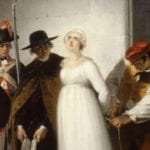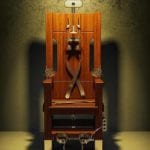 History
History  History
History  Health
Health 10 Everyday Activities That Secretly Alter Consciousness
 History
History Top 10 Historical Disasters Caused by Someone Calling in Sick
 Animals
Animals 10 New Shark Secrets That Recently Dropped
 Movies and TV
Movies and TV 10 Forgotten Realities of Early Live Television Broadcasts
 Technology
Technology 10 Stopgap Technologies That Became Industry Standards
 Weird Stuff
Weird Stuff 10 Wild Facts About Taxidermy That You Probably Didn’t Know
 Travel
Travel 10 Beautiful Travel Destinations (That Will Kill You)
 Miscellaneous
Miscellaneous 10 Modern Marriage Rituals Born from Corporate Branding
 Weird Stuff
Weird Stuff Ten Bizarre Visions of 2026 from Fiction
 History
History 10 “Modern” Problems with Surprising Historical Analogs
 Health
Health 10 Everyday Activities That Secretly Alter Consciousness
 History
History Top 10 Historical Disasters Caused by Someone Calling in Sick
Who's Behind Listverse?

Jamie Frater
Head Editor
Jamie founded Listverse due to an insatiable desire to share fascinating, obscure, and bizarre facts. He has been a guest speaker on numerous national radio and television stations and is a five time published author.
More About Us Animals
Animals 10 New Shark Secrets That Recently Dropped
 Movies and TV
Movies and TV 10 Forgotten Realities of Early Live Television Broadcasts
 Technology
Technology 10 Stopgap Technologies That Became Industry Standards
 Weird Stuff
Weird Stuff 10 Wild Facts About Taxidermy That You Probably Didn’t Know
 Travel
Travel 10 Beautiful Travel Destinations (That Will Kill You)
 Miscellaneous
Miscellaneous 10 Modern Marriage Rituals Born from Corporate Branding
 Weird Stuff
Weird Stuff Ten Bizarre Visions of 2026 from Fiction
10 Famous People Who Were Nazi Sympathizers
Prior to the breakout of World War II in 1939, the rise of the Nazi Party in Germany had caused concern throughout the Western world due to its anti-Semitic and aggressive policies. However, some within other countries harbored sympathetic and understanding feelings with the Nazi Party and their leader Adolf Hitler.
At the conclusion of the war and the reveal of the full extent of the Holocaust, many would strenuously deny any connection with or sympathy for the Nazis. Unfortunately for them, there were facts in place to contradict their denials. Read our list today to find ten people who were reportedly Nazi sympathizers.
10 Ezra Pound
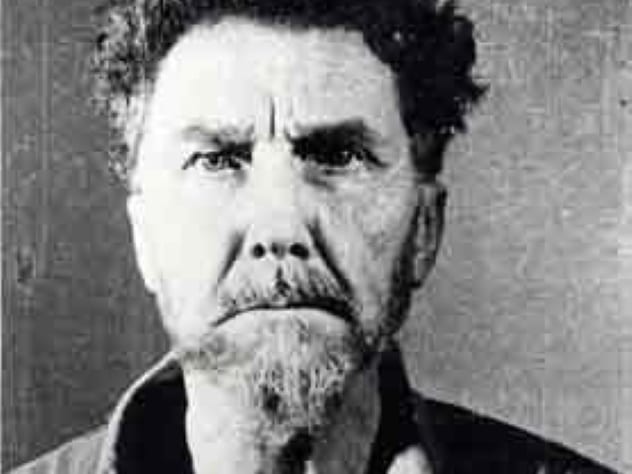
Ezra Pound was a famous modernist writer who was prominent during the early 20th century among writers such as T.S. Eliot and Ernest Hemingway in Europe, who he edited and collaborated with. After World War I, Pound had moved to Italy in apparent defiance to the UK and struck up support for Benito Mussolini, the fascist dictator. Pound met Mussolini in 1933. He spent years before and during World War II broadcasting on Rome Radio in support of Mussolini and Hitler and against Jews.
Pound was arrested when Italy fell to the Allies and would be charged with treason by the US. During this period, he spent three weeks in an outdoor cage before suffering a mental breakdown. He reportedly called Hitler “a saint” when talking to reporters and had asked to record one last radio broadcast which, among other things, would ask for leniency toward Germany. Pound would spend 13 years in a psychiatric hospital in the US before returning to Italy, where he still harbored anti-Semitic views.[1] He died in 1972, leaving behind a literary legacy which is revered but a personal legacy which is full of controversy.
9 Walt Disney
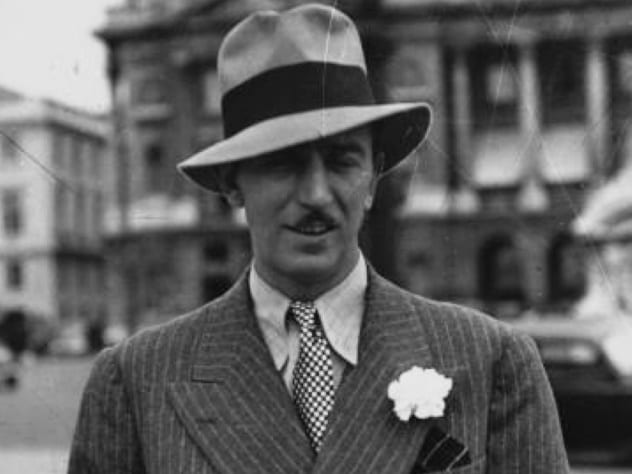
The assertion that the man behind one of the most famous and loved companies in the world harbored pro-Nazi sympathies is extremely controversial and somewhat shocking. However, there are reports that Disney was linked to a few events in the 1930s which were essentially US Nazi Party meetings. In the period before the war and the full atrocities of Hitler’s regime were known, there are smatterings of information that suggest elitist groups in the US and the UK held views similar to those of the Nazis, and Disney seems to have been one of them. In a book called Hitler’s Doubles, it is said that Disney was attending pro-Nazi meetings prior to the war.[2]
It is also known that Disney had hosted Leni Riefenstahl and gave her a tour of his studios. Riefenstahl was the director of Nazi propaganda films Olympia and Triumph des Willens. Disney’s company was criticized for this move. Disney would go on to create anti-Nazi films such as Education for Death: The Making of the Nazi, which somewhat muddies the waters. We will probably never know the true nature of his Nazi links.
8 Edward VIII
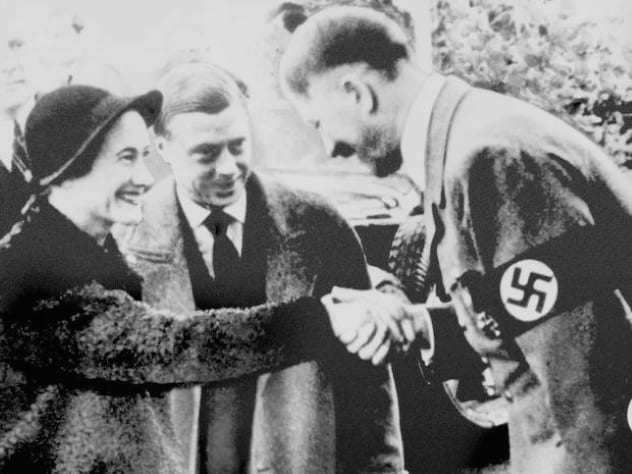
Edward VIII is perhaps the most visible and remembered person on this list who had pro-Nazi sentiments. His abdication of the throne in 1936 was caused by his marriage to the American Wallis Simpson, which caused a constitutional crisis, but it was said that he also had too close a connection with Adolf Hitler. Hitler was fond of Edward VIII, and his abdication in 1936 was seen as a blow to the relations Hitler hoped to keep with the UK. In 1937, the then-duke and duchess (Simpson) visited Nazi Germany and are famously pictured with Hitler during this visit.
During World War II, Edward was seen as a risk to the future democracy of the UK, as Hitler had plans to reinstate him upon successful invasion of England. He was made governor of the Bahamas during the war to keep him out of the way. There are numerous accounts of Edward professing his support of Hitler and his policies, with suggestions that he and his wife were fascists. It remains an awkward and contentious point of history in the monarchy of the UK.[3]
7 Henry Ford
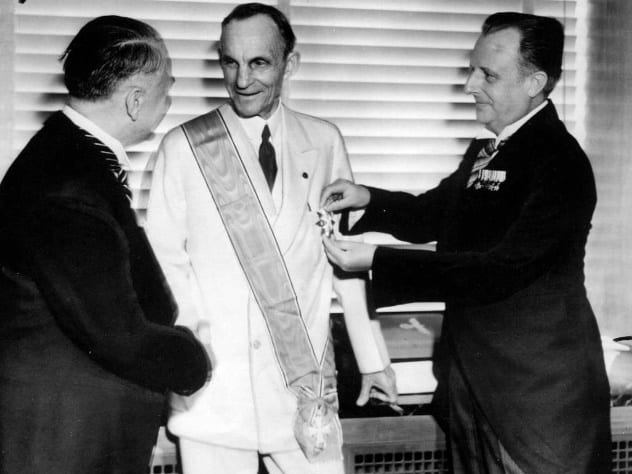
Henry Ford is an American pioneer who revolutionized the motor industry with the first assembly line for cars in the early 20th century, but some links exist between the man and the Nazi regime. In 1920, he gave an interview to New York World in which his anti-Semitic views were apparent, calling the “International Jew” a “threat” and accusing them of being behind World War I. The New York Times would also publish an article that suggested Adolf Hitler had a large picture of Henry Ford up on his office wall—in admiration of Ford.[4] This admiration is made clear when Hitler actually name-drops Henry Ford in his book Mein Kampf, calling Ford a “single great man” who “still maintains full independence” from the Jewish threat.
In 1938, only a year before Hitler would invade Poland, Ford was awarded the Grand Cross of the German Eagle, the highest medal possible for a person of non-German origin, with Ford being the only US citizen to receive the award. Ford’s name and collection of articles The International Jew was also brought up during the Nuremberg Trials after the conclusion of World War II as an influential piece of anti-Semitic rhetoric. Ford died in 1947.
6 Charles Lindbergh
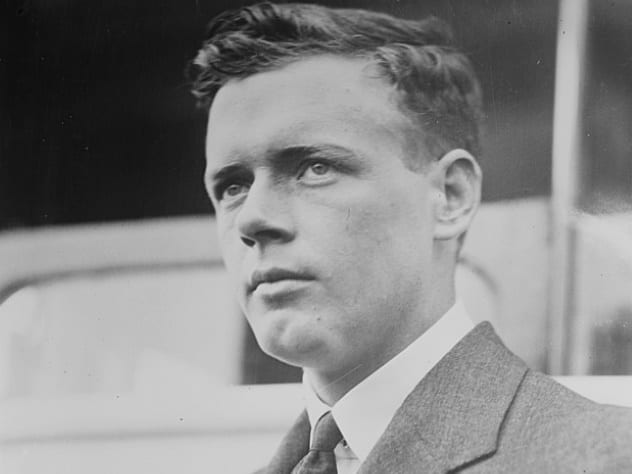
Charles Lindbergh was made famous overnight in 1927 when he successfully manned a plane from New York to Paris and won the Orteig Prize. His life was also struck by tragedy in 1932, when his infant son was kidnapped and murdered in a ransom attempt which was widely covered in the US media, being dubbed the “Crime of the Century.” He is perhaps remembered least for his outspoken rhetoric against entering the war against Nazi Germany and for his pro-Germany actions.
In June 1936, Lindbergh visited Germany on behalf of the US government in an effort to learn more about how far German aviation had come. Lindbergh also sat near Hitler during the opening ceremonies of the 1936 Summer Olympics but, by all accounts, did not communicate with him.[5] After this, Lindbergh became a pariah in the US, as he called for neutrality and nonengagement in the war with Germany, often attracting German American Bund (a US pro-Nazi organization) members to his speeches. Lindbergh was careful never to admit to Nazi sympathy, and to some extent, he may not have been a sympathizer, but his position was confusing for the US public, and his reputation undoubtedly suffered from it.
5 Charles Coughlin
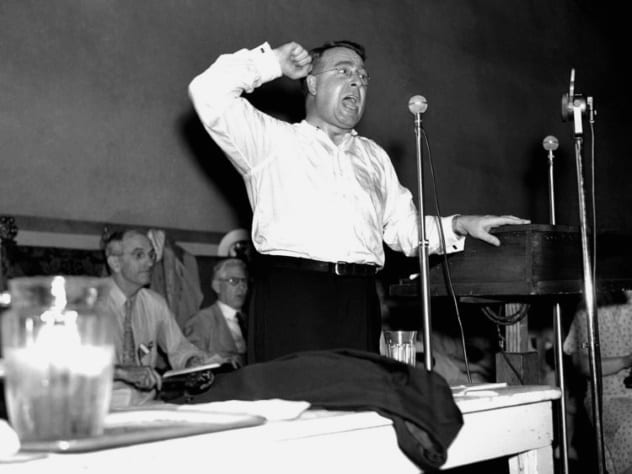
Charles Coughlin, commonly referred to as Father Coughlin, was a Roman Catholic priest who used radio before World War II to reach millions of listeners to his doctrines. Coughlin expressed interest in fascist governments, including the Third Reich, in an apparent contrast to communism and Jewish control of banking. In November 1938, Coughlin effectively spoke out against Kristallnacht when asserting that Christian persecution came first. After this controversial broadcast, he became an outcast from mainstream radio and began to receive followers who were anti-Semitic, to the extent that public protests were carried out.
After World War II broke out, he was forced out of radio by the US government and was also made to stop publishing his newspaper, Social Justice. He was to cease all political activity and perform only parish duties. Coughlin denied his anti-Semitic views throughout his active political life, but there is a wealth of facts (including some evidence that suggests Coughlin received funding from Nazi Germany) that point to him being sympathetic with Hitler’s regime.[6]
4 Cliveden Set
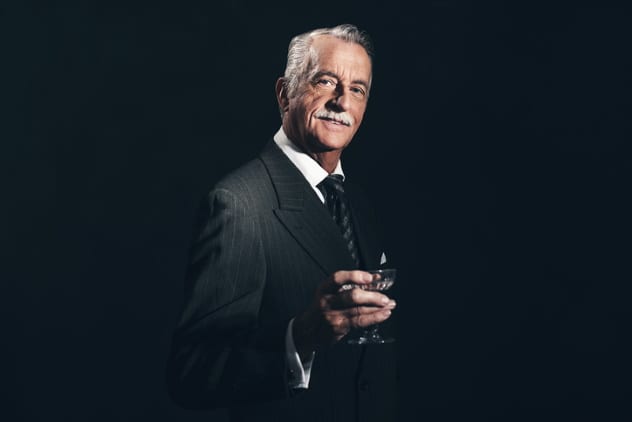
The “Cliveden set” was a name given to a group of wealthy individuals who would regularly meet at Cliveden, a home in Buckinghamshire that was the residence of Nancy and Waldorf Astor in the interim period between the World Wars. The group, who were dubbed the Cliveden set in 1937, were one of the most controversial of the period. They seemed to be deeply anti-Semitic and had considerable influence on some of the highest members of the British government. They also seemed to have connections with some high-ranking officials of the Nazi Party and were known in the US. Neville Chamberlain, prime minister of the UK from 1937 to 1940, was said to have been influenced by the group.
However, in more recent years, it has been discovered that the Cliveden set may have been misunderstood and were on a list of people who would be immediately arrested on the successful invasion of Britain by Germany. The Cliveden set were often written about by Claud Cockburn, the editor of The Week, and his shaming of the group is disregarded today as biased. It might be called “fake news” in 2019. It remains unclear if the group were really pro-Nazi, but they seem to be linked forever in history to being pro-German.[7]
3 Sir Oswald Mosley
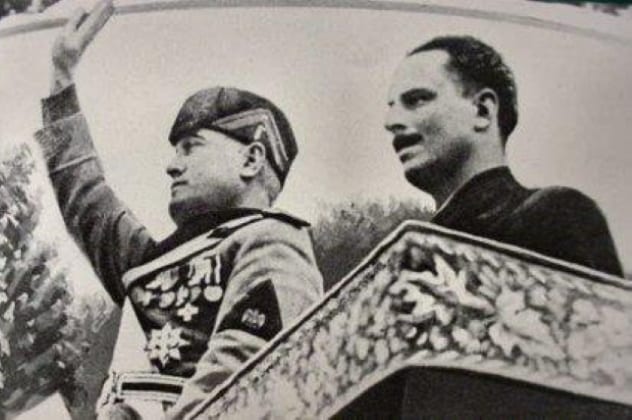
Sir Oswald Mosley is probably the most obvious Nazi sympathizer on this list. Mosley was a British politician who had failed to be elected in his constituency in 1931, despite being a convincing speaker. After visiting Mussolini in Italy in 1936, he became convinced that fascism was the best alternative to communism and that Britain needed to embrace it.[8] He founded the British Union of Fascists (BUF) in 1932. The BUF targeted Jewish neighborhoods with Mosley’s Fascist Defence Force (nicknamed the “blackshirts”) but remained popular with some strands of followers in England. Mosley would perform the Nazi salute to his blackshirts, who, in turn, performed it back. In 1936, Mosley married Diana Guiness in the home of Joseph Goebbels, with Hitler in attendance.
During World War II, Mosely attempted to convince the British government to accept Hitler’s offerings of peace, but he would be arrested and placed under house arrest. Mosely had extremely strong verbal skills, and this was considered dangerous in a turbulent time in Britain. However, public opinion on Mosley dipped after Nazi Germany began the Blitz on London. He spent the majority of World War II under house arrest, and after the war, he pursued trying to drive Europe to become a single state.
2 Philip Johnson
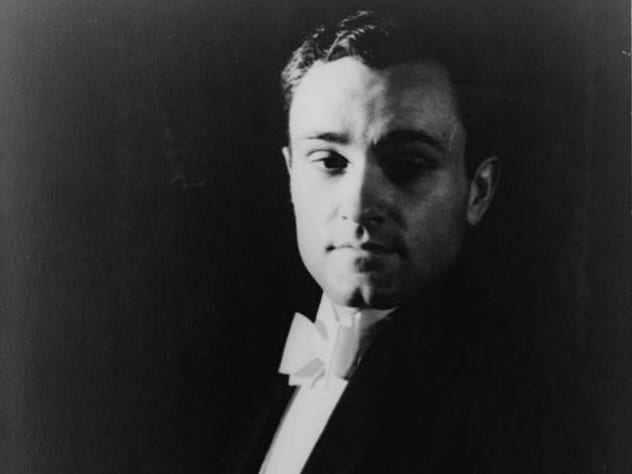
The architect Philip Johnson, known for designing the Glass House in which he lived in Connecticut, was an active supporter of Hitler’s Third Reich prior to the outbreak of World War II. Johnson was linked with Father Charles Coughlin and the anti-Semitic newspaper Social Justice, writing articles for them. Johnson was also known to have traveled to Nazi Germany to report on the huge rallies that were organized, including the annual Nuremberg rally. He was said to have been enthralled by them and made contacts with key Nazi officials during his visits.[9]
In 1940, the FBI would uncover Johnson’s involvement in driving German propaganda to the US “on the Nazis’ behalf.” Johnson would refer to the destruction of Warsaw as a “stirring spectacle.” He was undoubtedly a Nazi sympathizer, but Johnson would try to distance himself once World War II broke out. Years later, in 2018, The New Yorker wrote that Johnson still professed admiration for Hitler as of 1964 by calling him “better than Roosevelt.”
1 Viscount Rothermere
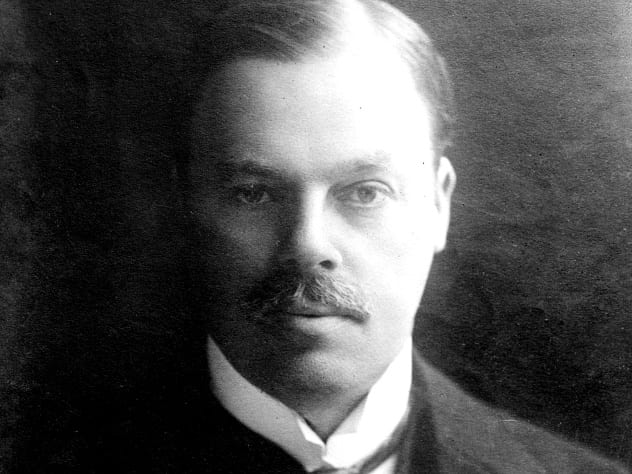
Harold Sidney Harmsworth, 1st Viscount Rothermere, may not be a name you have heard before, but he was a groundbreaking journalist who was fundamental in the creation of the UK newspapers the Daily Mail and Daily Mirror. To this day, his family have control over the newspapers and have had an influence on British politics due to this. During the years between the World Wars, Rothermere corresponded with Hitler and would publish articles in his newspapers that essentially promoted fascism. He was also supportive of Oswald Mosley and his BUF. To have a man in such an influential position as Rotheremere openly supporting the Nazi regime must have been deeply concerning.
Rotheremere also paid an annual fee to Stephanie von Hohenlohe, a notorious German spy who was watched by British and American authorities and eventually arrested. This fee was said to be in the aim of promoting Nazi Germany and helping Rothermere get closer to influencing Hitler.[10] In 1939, he wrote a book, My Fight to Rearm Britain, in which he detailed his fight for increased spending on defense and resources needed to protect the country. Regardless, he was heavily linked with the Nazi party in their earlier days, as many English aristocrats seemingly were, yet held such an influential position that it can only be regarded a miracle that many others were not persuaded by his publications.
N/A
Read about the people supported by those on this list on 10 Facts About The ‘Spandau Seven’ Nazis and 10 Nazis Who Killed Themselves With Cyanide Suicide Capsules.


